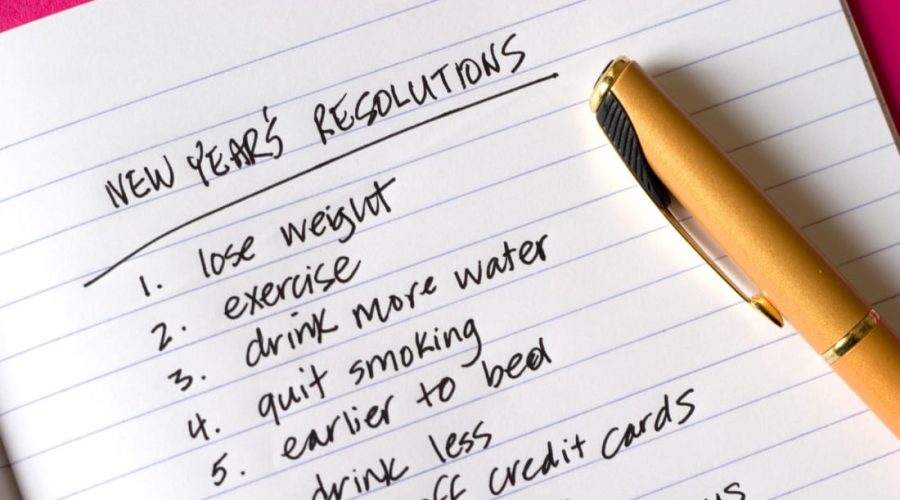Now that the holiday season has ended, our minds begin to turn towards the new year and the hope of a fresh start. Every year, when the new year approaches, many of us resolve to change our behaviour to lose weight, hit the gym more often, cut back on our spending, or become a better person. However, for most of us, these ‘resolutions’ fall by the wayside within a few weeks, leaving us disheartened at our failure to stay committed to them. So why do New Year’s Resolutions tend to fail? This article gives some good reasons why https://www.psychologytoday.com/au/blog/what-mentally-strong-people-dont-do/202412/why-new-years-resolutions-set-you-up-to-fail
At this time of the year, many people reflect on the year that was, what they achieved, what they didn’t achieve, and what they hope to achieve next year. Many people find it enjoyable doing this and reflecting on all that they have accomplished, as well as assessing where they currently are in life and what they may want to change in the forthcoming year.
Unfortunately, setting New Year’s resolutions has an unsatisfactory track record. I don’t believe that there is anything magical about January 1st, in fact, letting go of the idea that there’s something magical about a new year brings a fresh look that each day has no more or less potential than any other day in the year. Success is as just as likely today as tomorrow or any other day in the year. If the idea of making New Year’s resolutions appeals to you, perhaps you could consider setting SMART New Year’s goals instead.
Changing habits can be difficult and requires us to balance what it is we want to achieve, how difficult it will be to achieve it, and how to stay motivated to achieve it.
When setting goals, SMART goals can help you to achieve your goals and stay motivated. SMART is an acronym, and each letter represents a step towards successfully achieving your goal.
S = Specific.
Keep your goal to the point with a specific outcome, e.g., I aim to run 5kms in 2 months and to achieve this, I will use a measured approach to gradually increase my distance and speed.
M = Measurable:
Establish steps to track your progress, e.g., Run for 30 seconds/walk for 90 seconds in weeks one and two, Run for 45 seconds/walk for 60 seconds in week 3 etc.
A = Achievable
Set realistic goals that challenge you but are within reach, as long as you keep up your effort and commitment. Make steps that are achievable!
R =Relevant
Is the goal in alignment with your values and long-term objectives? Make sure that it contributes in a meaningful way to your personal development. https://sydneyhillscounselling.com.au/blog/the-importance-of-values-why-they-are-important-and-how-to-identify-them/
T= Time-sensitive
Set a deadline to create a sense of seriousness and to prevent procrastination.
Some tips for setting SMART Goals
Choose 1 or 2 goals to work on at one time.
If you choose too many goals, you will be less likely to achieve them. It is better to focus on 1 or 2 goals until that goal is achieved and then you can add on one or two more goals. When choosing a goal, it’s helpful to ask, “What goal would have the biggest impact on my life right now?”
Break goals down into steps and have a plan.
Break your goals down into smaller, more manageable steps, e.g., I want to lose 20 kilos by 24/12/2025, would look like I will lose 4 kilos by 31/01/2025
Schedule time to track your progress.
This will look different for everyone, and it will depend on the type of goal/s you set. Once a week or once a month seems to work for most people. This can look like keeping a checklist, a record of your activity, or checking in with another person.
Have an accountability partner.
Checking in with a friend or acquaintance who has similar goals can provide you with support and motivation. You can update each other on your progress with your goals. This type of relationship should be encouraging and motivating, reminding the other of their ‘why’ rather than being harsh or shaming. If you didn’t achieve your goal, what were the barriers for you this week/month?
Be flexible
Life happens. Work, kids, parties, grief, loss, surprises, life changes and adjustments are all things that ‘happen’. These events can steer us away from our goals for a while or even make us think about updating our goals to better reflect our needs, wants and values.
Aim for Progress, not Perfection.
There is no such thing as perfection, so don’t chase something that does not exist. Aim for progress instead; perfection most always leads to disappointment.
Commit to setting goals for shorter periods.
Try setting a goal for 1-3 months and then updating it. This is more time-sensitive and relevant given the daily pressures we are faced with every day.
Remember, you can always start again at any time.
You don’t have to wait until the new week starts or until the beginning of the month, or until the New Year to set goals and begin achieving them. Your goals aren’t ruined if you go off track for a week or even longer. The bus will come when you are ready to get back on.
Expect to feel unmotivated at times.
It’s natural and human to lose motivation. Keep a list of reminders of what motivates you to help combat this.
Celebrate!
Allow yourself to feel happy not only at the end of accomplishing mini-goals or big goals but during the process as well. Reward yourself with small things that bring a smile to your face: a favourite magazine or going to a movie you’ve wanted to see. A word of warning! If your goal is to lose weight, don’t reward yourself with food.
If you find that you are lacking motivation or are finding it hard to reach your goals, it may be worth having a chat with a registered, professional counsellor. Psychological barriers may make it difficult to achieve goals and cause frustration and shame. At Sydney Hills Counselling, we will work with you to figure out the barriers that stand in the way of achieving your goals. We will assess the barriers, look at the goal you’re trying to achieve, your skills and abilities relative to the goal, and the environment in which you are trying to achieve your goal. We can also help you adjust your goals and make changes in any or all of these areas to support you in achieving whatever it is you want to achieve.
Sydney Hills Counselling will be closed from Monday, December 23 and will reopen on January 6. You can also contact Sydney Hills Counselling via email during the Christmas and New Year break at [email protected]. for inquiries and to request an appointment.
Copyright © 2024 by Sydney Hills Counselling






